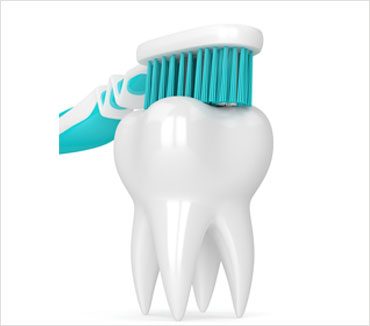How do eating disorders affect your oral health
What is an eating disorder
Eating disorders are a serious mental and physical health issue that plagues our society and can impact anyone, regardless of age, gender, or ethnicity. According to the National Eating Disorders Association (NEDA), 20 million women and 10 million men in the United States will be affected by an eating disorder at some point in their lives. It can not only have a negative effect on one’s health, but also on one’s self-image, personal relationships, performance in daily tasks, and overall quality of life. Eating disorders can significantly influence the body's ability to get adequate nutrition, which in turn can lead to many other health problems. Eating disorders are life-threatening, but fortunately are treatable.
Types of eating disorders(mostly related to oral health)

Anorexia
Anorexia is a common eating disorder characterized by an extreme fear of gaining weight. Individuals with this condition often consider themselves to be overweight, which typically leads to dangerous behaviors including starvation or excessive exercise. Individuals with anorexia may even rid food from their bodies through self-induced vomiting, laxatives, or enemas.
Bulimia
Bulimia, like anorexia, is also characterized by fears of gaining weight. This condition involves periods of excessive eating followed by purging through self-induced vomiting, or using laxatives or other medications.
Binge-eating disorder
Binge-eating is a common disorder that has been found to affect both men and women at a similar prevalence. This eating disorder involves repeated periods of excessive food consumption. Individuals often feel a lack of control when overeating followed by guilt and/or shame. These periods of overeating are not accompanied by purging behaviors such as in individuals diagnosed with bulimia. Diagnostic criteria for the binge-eating disorder include the behavior of binge eating occurring on average at least once a week for a period of 3 months, according to NEDA.
The effect of eating disorders on your oral health
Eating disorders can have a significant detrimental effect on oral health. Poor nutrition and harmful behaviors such as vomiting can create many problems. Nutrients such as calcium, iron, and B vitamins help keep teeth strong and healthy. Insufficient iron can lead to the development of oral sores. Inadequate amounts of vitamin B3 are associated with bad breath, dry mouth, canker sores, and inflamed gums. Eating disorders have also been associated with degenerative arthritis within the temporomandibular joint in the jaw, leading to pain, chronic headaches, and trouble chewing.
Symptoms that you may have an eating disorder in your mouth
Surprisingly, dental professionals are often the first people to see the negative effects of eating disorders just by taking a look inside the mouth. Vomit can cause severe harm to your oral health due to the erosive effects of stomach acid contacting the teeth and surrounding oral tissues. This can result in worn down and translucent teeth, sensitive teeth, tooth decay, dry mouth, inflamed salivary glands, trouble swallowing, and other oral health issues. Individuals with eating disorders also may lack necessary nutrients which can lead to gum disease, bone loss in the jaws, oral sores, and bad breath for instance.
Prevention and measures to avoid eating disorders and to keep your mouth healthy
If you believe you or someone you love is suffering from an eating disorder, it is important to seek help. Eating disorders are very complex, often involving help from a team of health professionals, including your dentist. Early diagnosis and treatment can significantly improve one’s recovery. To keep your mouth healthy, it is important to practice good oral habits including toothbrushing at least twice a day and flossing daily. Be sure to visit your dentist regularly for check-ups and cleanings. Avoid tooth brushing immediately after vomiting or oral exposure to harmful acids as this can cause further damage to your teeth due to their weakened state. Instead, rinsing with baking soda or a fluoride-containing mouth rinse can help neutralize the acidic effects. Your dentist may recommend in-office fluoride treatments or prescription fluoride toothpaste to help strengthen your teeth and protect against cavities. If you are experiencing dry mouth, your dentist may recommend sugar-free gum containing xylitol or saliva substitutes.
If you or a loved one is battling an eating disorder, one of the most important things that you should know is that help is always available. The National Eating Disorders Association (NEDA) offers a helpline focused on supporting all who are impacted by eating disorders. Trained helpline volunteers can help offer guidance, resources, and treatment options for anyone in need, and it is all confidential! You can call NEDA’s helpline at (800) 931-2237, or text to chat at (800) 931-2237. NEDA also offers a 24/7 crisis text line for emergencies that can be accessed by texting “NEDA” to 741741.



